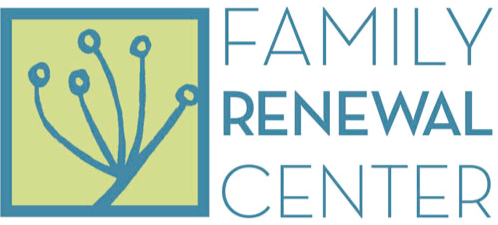
Recently, it has become impossible to interact with people and not hear someone say “that person is triggering” me. It might have been on TV, in the check out line, within your family, or amongst a group of friends. What does triggering really mean?
If you stand back and watch how it happens, you will discover a prescribed process. The worse part of this is that most of it occurs unconsciously. People are not aware they are engaging in this process. However, the process will always occur this way.
- Person A uses a word, wears a hat, or expresses an idea.
- Person B experiences an emotional reaction to what person A said or did
- Person B aggressively shuts down the conversation or becomes belligerent about the word or action.
- Any hope of real connection or discussion about the issue is over.
- Person B retains a sense of righteous justice for having ended the interaction and reiterates the degree of insensitivity the other person has shown.
In an earlier blog I used the word “Elephant” as a basis for triggering. Let’s go back to that example. Before you read on, I would encourage you to think about the words or actions that “trigger” you. You might react externally and let others know they have caused you distress, or maybe you only react internally and find yourself starting down a negative spiral. After you have identified a trigger, replace your personal trigger for the word elephant.
From my March 19, 2019 blog: Person A hates elephants, maybe they had a bad experience with one, maybe they were scared by one as a child, or maybe they think elephants are just too big and smelly. If person B uses the word ‘elephant,’ person A may respond with accusations that person B is insensitive and disrespectful because person B should know how much person A hates elephants. Person B now has a choice to either work really, really hard at never saying ‘elephant’ again or to recognize the response is really about person A. Person A cannot and should not expect anyone else to lower their anxiety about elephants.
Having identified the process that occurs during a triggering event, what can you do with this information? I would encourage you to understand the underlying procedure that is occurring. All interactions between people are based on anxiety. Yes, it is that simple.
Anxiety, or the worry that something may or may not happen, rules all our interactions. Returning to the elephant example, person B is not responsible for keeping person A calm. Person B is only responsible for maintaining their self-calm. Whereas person A is responsible for remaining calm. The difficulty emerges when person A expects and demands person B takes responsibility for lowering their anxiety.
This is true even if person B purposely used a previously identified triggering word. Purposely using a known triggering word to cause distress is a method person B uses to lower their anxiety. However, when person A reacts, person A is now attempting to reduce their anxiety.
To review:
- Everything is about anxiety.
- The other person’s actions, words, or thoughts have nothing to do with you.
- Your responsibility is to manage yourreaction to anxiety.
Your life will transform when you stop expecting other people to lower your anxiety and you develop healthy methods of lowering your own anxiety. The only person responsible for your life is you. This sounds easy, but learning how to do it can take a life time of learning. So, how do you lower your anxiety?
- Recognize when other people focus on you as the problem, it isn’t about you. This is true both when people are claiming you are the problem and when you really did cause the problem. The other person’s emotional reaction stems from their attempts to manage their anxiety.
- Recognize when you are responding out of anxiety. If someone is accusing you of causing a problem when you know you did not cause it, anxiety can drive you to fight back. When someone is accusing you of a problem you did cause, anxiety drives you to deflect the responsibility for the problem.
- Take responsibility for yourself. The first step is to take a breath and calm yourself down. This millisecond gap allows you to think about the situation instead of instinctually reacting out of your amygdala. Responding from the amygdala will cause you to fight, freeze, or flee. These three responses never contribute to a productive interaction.
Second, step up and discuss the issue not the accusations. Focus on the facts of the situation instead of attempting to defend yourself. Working through facts instead of emotions provides you the ability to think about what is really happening.
Third, admit to your actions. If you did cause the problem, taking responsibility allows the conversation to focus on the facts instead of being stuck into emotional reactions.
Okay, so if all of this is true how does it work with real issues such as memories of abuse or previously done harm? I want to make sure you understand I am not saying people are not affected by previous experiences. The problem is people allow previous experiences to rule their current life.
There is not a person in the world who deserves to be abused or harmed. However, each person must take responsibility for how they are reacting to the abuse and harm. Let me be clear. A person is not responsible for the abusive actions, a person is responsible for how they are allowing the experience to continue influencing how they live. Recognizing reactions based on previous hurts should be a catalyst for you to reach out for help.
To start on the road to healthy responses, take time to reflect on the real process occurring the next time you find yourself saying or thinking “how dare you trigger me!” Remember, it is impossible for anyone to trigger you. There is no-one in the world who can force you to think a certain way. Triggering only occurs within yourself. Triggering should be seen as a red flag of dysfunctional thinking. It should help you recognize a need to address how you respond to anxiety.
If you are recognizing a pattern of expecting other people to reduce your anxiety, please give me a call. Phone: 1.425.507.9067 or email: Julie@familyrenewalcenter.com

